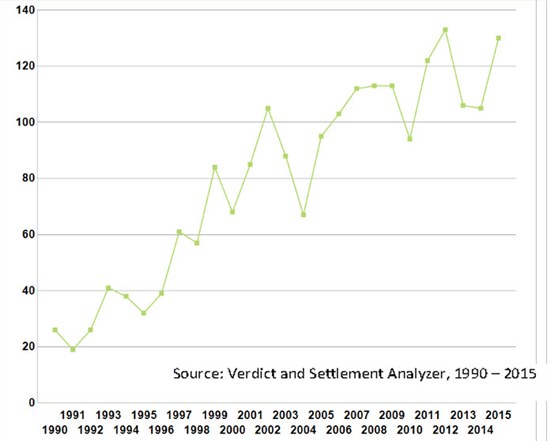Catch ‘em all or Sue ‘em all? Pokémon Is About To Get “Legalized”
In early July, millions of Americans began acting oddly, walking around in ever increasing numbers with their cellphones pointed in all directions, muttering about PokéStops, Poké Balls, and wild Pokémon. The phenomenon expanded exponentially as news outlets and social media picked up on the story. It was the advent of “Pokémon Go” – an augmented reality game created by software company Niantic (in partnership with Nintendo) where the players could use the GPS, mapping, and camera features of their phones to find, fight, capture, and train little cartoon creatures called Pokémon. The creatures show up on the users’ cellphone camera screens as if they are in the same real-world location. It’s tremendous fun for people of all ages. It’s addictive. It brings people together in all sorts of places, and it makes them get up and get exercise. So what could possibly go wrong?
Well, like so much in life, the great stuff has a darker side. Shortly after the game exploded onto the gaming scene, people started getting hurt. One website has actually started tracking and mapping the “mayhem.” https://theringer.com/mapping-the-mayhem-caused-by-pokemon-go-ed3bcc996c87#.sb4pzhl20. A glance at the website and associated news articles show that savvy criminals have used the game app to find and even lure users to locations in order to harm them. Within days of the game’s release, robberies of players took place in Missouri, New York, Maryland, Illinois, Texas, and Washington. A convicted sex offender was arrested for stalking children who were playing the game. People who were looking at screens and not at the real world around started falling down, getting hit by cars, even falling off cliffs, and crashing their cars into all sorts of things, including in one case, a police car. And for all the small business owners thrilled by the extra traffic to their stores, there are more equally unhappy property owners who resent all the players who suddenly started trespassing on their property.
For legal professionals, Pokémon Go is reminiscent of law school tort exams. Take a minute to think about the game and spot the issues, and they start popping up out of nowhere like the Pokémon themselves. And from this “augmented reality,” real world lawsuits are certain to follow. Apparently, a class action has already been filed by property owners who dislike the sudden Pokémon Go-related trespassing. http://variety.com/2016/digital/news/pokemon-go-class-action-lawsuit-trespassing-1201829627/.
Personal injury lawsuits are also certain to follow. People who are injured by the distracted players will be able to assert negligence claims against them. Not only are such accidents foreseeable, they have already occurred – we’ve already seen the advent of car crashes caused by “Pokémon Go” playing car drivers. We already know that distracted driving is a continually increasing problem. An examination of jury verdicts in LexisNexis Verdict & Settlement Analyzer (VSA) from the past 25 years shows a six-fold increase in the number of lawsuits brought against distracted cellphone using drivers. There’s every reason to think that a certain portion of the population, like the people who can’t stop texting or talking on the phone while driving, would be unable to stop playing this addictive augmented reality game.
Numbers of Distracted Driving Cases in VSA since 1990:

Product liability claims, therefore, will join the mix of anticipated lawsuits based on trespass, negligence, and who knows what else. Anticipating all this, Niantic placed a mandatory arbitration clause in the game’s terms of use. Players have a 30-day opt out period to protect their rights to a jury trial. https://www.nianticlabs.com/terms/pokemongo/en . The vast majority of users, however, will never read the terms of use, and the only ones who take action to protect their legal rights are probably the ones least likely to need the protection.
The law school exam based on Pokémon Go, therefore, just got a little more convoluted. We still have yet to see how this augmented reality game will play out in the real world of lawyers, judges, and juries. But one thing is certain, it will play out. And while it will be built on precedent set by dangerous design suits, distracted driving cases, and property trespass law, Pokémon Go may in turn lay foundations for all the law yet to arise from virtual and augmented reality games that we’ll be playing 10 or 20 years from now.
For all your jury verdict and settlement needs, please visit the LexisNexis Jury Verdicts and Settlements on Lexis Advance® and LexisNexis® Verdict & Settlement Analyzer.
For more information about LexisNexis products and solutions connect with us through our corporate site.